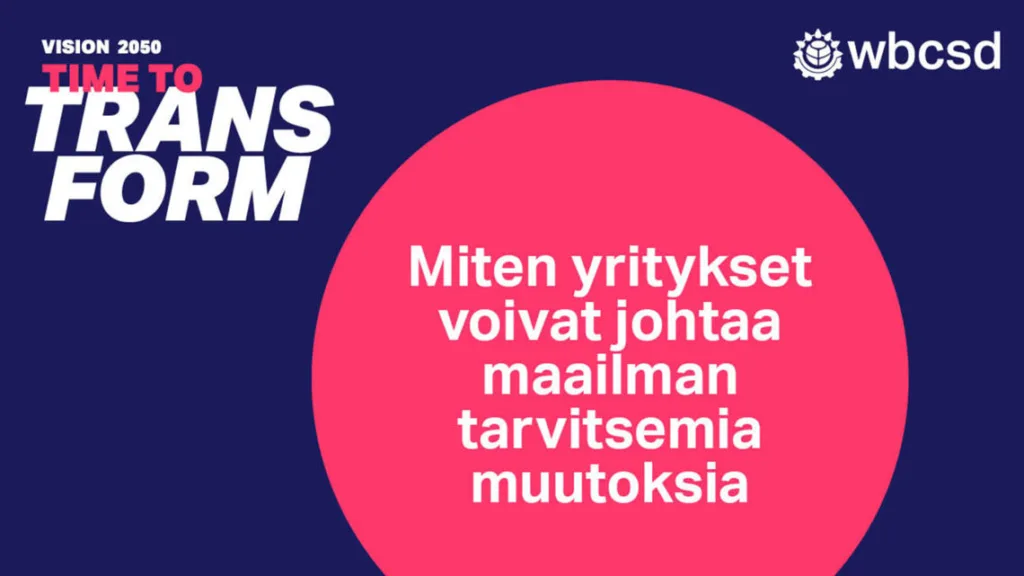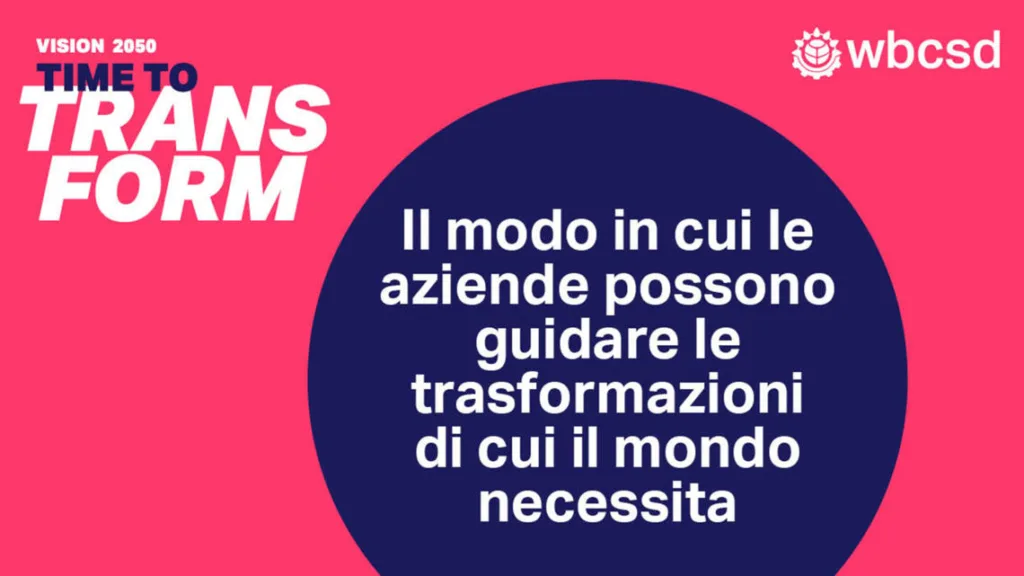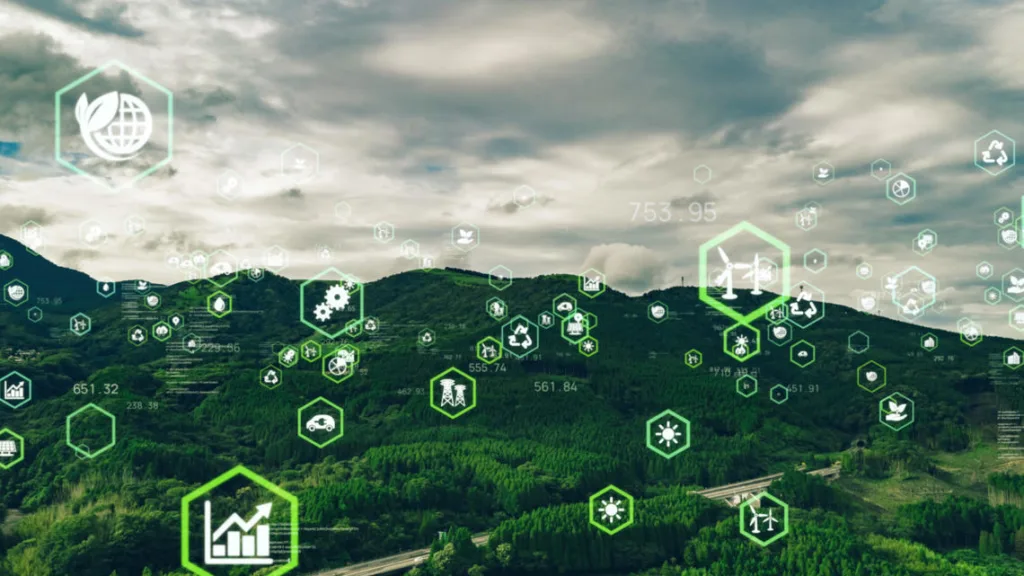Authors
Keryn James
Keryn James is Group chief executive at ERM and a member of WBCSD’s Executive Committee.
As chief executive of a firm that has for 50 years helped the world’s leading organizations navigate sustainability challenges, I am often asked how companies should prepare for a next crisis such as Covid-19 or other future shocks. The truth is that our clients and partners who were already well on the path to truly integrating sustainability into how they do business have been those who have adapted most rapidly to the pandemic.
My firm, ERM, has been involved in the World Business Council for Sustainable Development (WBCSD) Vision 2050 project, focused on re-prioritizing the critical roles for business during the UN’s “decade of action” running up to 2030. At the beginning of 2020, when the pandemic took hold, the WBCSD established a Covid-19 response project, and I serve on its steering committee.
We worked with WBCSD through our new ERM SustainAbility Institute on a brief exploring how companies can build better long-term resilience into their strategies and the systems within which they operate. The brief defines such resilience as “a business’s ability to anticipate and prepare for change, then adapt to circumstances in the manner that provides the greatest chance of thriving over the long term”.
We engaged with some of the world’s leading companies, who are wrestling with this very question as they move from crisis management into planning for the medium to longer-term future (while most are still experiencing significant business disruption). And we explored building long-term resilience in companies through three lenses: developing risk-management capabilities; investing in human and social capital; and fully integrating environment, social and governance (ESG) matters into decision-making.
Most companies would admit that their risk-management processes left them underprepared for the impacts of this pandemic. While such an event may have appeared on the corporate risk register, the tools and approaches they used did not achieve the pre-planning required to manage the speed, scale, breadth and duration of the impacts we are all experiencing.
In recent years, more companies have adopted new tools, such as stress tests, scenario analysis and similar exercises, to prepare for crises and manage risks. But more important is the way that these exercises force us to think and communicate in tumultuous situations. Firms whose risk processes encourage innovative thinking, rehearse dynamic situations and empower employees to own and manage risk within their scope of influence have responded more effectively, and are now deploying that experience in the recovery phase.
Incorporating resilience into the cultural fabric of a company requires investment in human capital. Companies who put their employees first, ensure they communicate effectively to all stakeholders and build leadership capability have been able to adapt the quickest in this crisis. Investing time and resources in aligning priorities and developing effective communications pays off when a crisis necessitates a sudden change in strategy. Clear, decisive and authentic leadership is a defining characteristic of those organizations that are adapting more effectively to the current situation and planning for the future.
A greater understanding of the interconnectedness of natural, social and economic systems – and how they impact business – is essential. The acceleration and amplification of the dialogue around ESG has happened at warp speed in the past six months. As the impacts of climate change, deepening inequality, biodiversity loss and other environmental and social challenges have become more pronounced, businesses have come under growing pressure not only to demonstrate their positive impact on society but also to understand how these changes will impact their business model.
A traditional focus on financial metrics and disclosures alone causes businesses to miss a host of issues material to their long-term success. The evidence is building: a report this year by HSBC (one of several pointing to similar conclusions) concluded that the stocks of companies with stronger ESG credentials and more robust climate strategies have outperformed those of their peers this year. Integrating ESG is no longer a “nice to have”; it is integral to strong corporate governance and business performance.
At ERM we have been focused on understanding the changing context for risk management, investing in human capital and capturing the opportunity presented by ESG. The health, safety and well-being of our employees in our 160 offices always comes first. We operate a significant portfolio of field-based programs on behalf of our clients in more than 100 countries around the world. As the pandemic took hold, we had to rapidly and thoughtfully transform all our ways of work and, in many cases, supported our clients to do the same.
More than six months later, we are still adjusting our ways of work and are actively planning for a transformed future. One of our biggest priorities is the well-being of our employees while we adjust the focus and size of the business to the market. We have a range of initiatives focused on building individual resilience as people adjust to changed circumstances caused by COVID and the global focus on racial injustice and diversity. This, in turn, will build our organizational resilience to navigate the challenges ahead and reimagine our future. We are also partnering with clients to build the resilience of their businesses through integrating ESG elements into their strategic and operational decision-making, in what we call our “boots to boardroom” approach.
It is important to think about COVID-19 within a broader context. Without doubt it is simply a foretaste of the kind of disruption and devastation the world will experience if we do not address the state of the global commons – including climate change, biodiversity and nature loss, and inequality.
Post-pandemic life has to bring with it a new world – socially, economically and environmentally. As we commence the “decade of action” towards the key 2030 milestone for the Sustainable Development Goals, we are drawing on our 50 years of experience to support our clients as they navigate the immediate challenges they are facing and begin to build greater resilience as they plan for the future. The decisions and plans made now must take into account preparation for, and mitigation of, future shocks – particularly the climate change emergency.
There can be no other way forward.
This piece was originally published for the GEF-Telegraph Partnership
WBCSD news articles and insights may be republished in accordance with the Creative Commons Attribution-NonCommercial-NoDerivatives 4.0 International Public License, and in accordance with our Privacy Policy. All Content must be featured with due credits.
Related
Content

What will the sustainable and healthy planet look like in 2050 and what are the urgent actions needed from corporations to get us there?
1 March, 2022

Vision 2050: Time to Transform now available in Italian
2 February, 2022

Getting ready to reach new heights of sustainable business leadership
13 December, 2021
